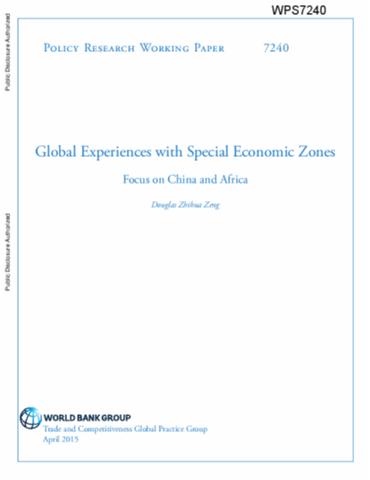Resource information
This study briefly summarizes the development experiences of special economic zones in China and Africa, the lessons that Africa can learn from China, and the preliminary results of the Chinese investments in special economic zones in Africa. The study makes recommendations on how to unleash the power of special economic zones and industrial zones in Africa through strategically leveraging the Chinese experiences. The success factors of Chinese special economic zones include the strong and long-term commitment of the government, a conducive business environment in the zones, strategic locations, technology upgrading and skills training, and strong linkages with the local economy. However, the Chinese experiences highlight some pitfalls to avoid, such as the “mushroom approach” and high-level overlaps at the later stage, environmental degradation, and the unbalance between industrial development and social dimensions. This calls for a bigger role for the market. Sub-Sahara Africas experience with traditional economic zones has been relatively poor, except in a few countries, such as Mauritius. The key challenges include the poor regulatory and institutional framework, lack of effective strategic planning, weak governance and implementation capacity, and inadequate infrastructure, among others. Since 2006, China has implemented special economic zone projects globally, including in four countries in Sub-Saharan Africa. It is still too early to conduct a full assessment of these projects; however, the evidence shows that some zones have begun to attract investments and make important contributions to the local economy. The main challenges include access to land, regulatory barriers, resettlement and coordination issues, and lack of external infrastructure.


